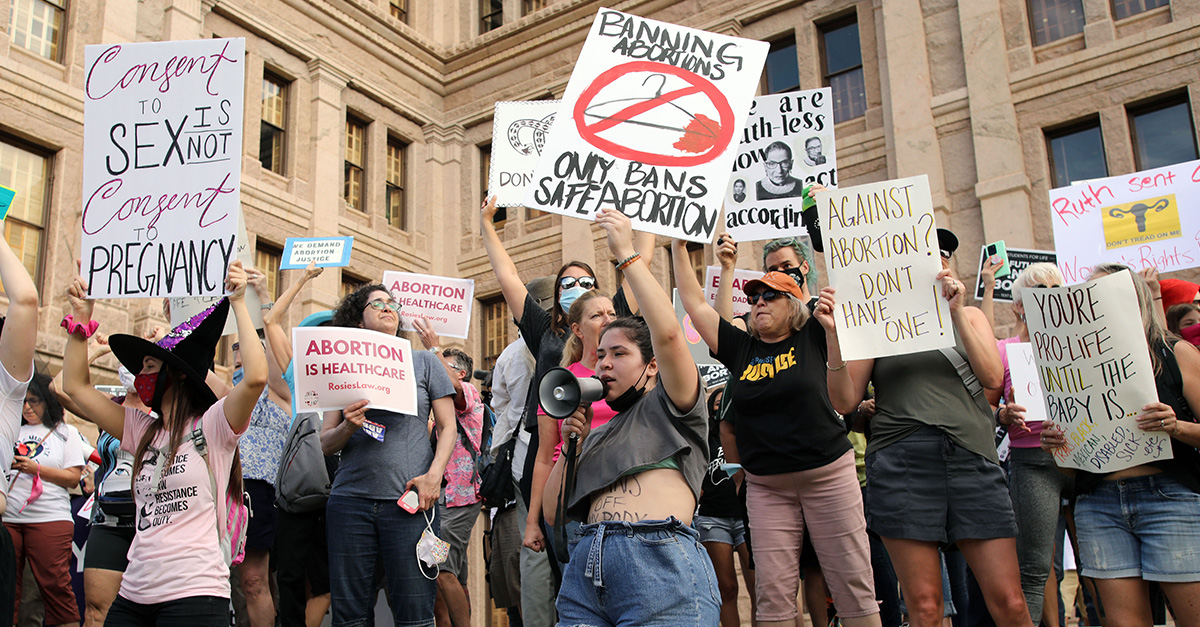


Get a free copy of Parental Rights & Education when you subscribe to our newsletter!

“The law is clear that public schools cannot discriminate against the Christian viewpoint of Good News Clubs. Equal access means equal treatment in terms of use of the facilities, including fee waivers, time of meetings, and announcements. The Good News Club must be given equal treatment as the non-religious groups.”
–MAT STAVER, LIBERTY COUNSEL
Child Evangelism Fellowship (CEF) has filed a lawsuit against a Rhode Island school district alleging that the school district has ignored its requests to allow its after-school Good News Club to meet even as it has greenlighted other viewpoint groups.
The Good News Club, which is sponsored by CEF, teaches lessons from the Bible and shares the Gospel, as well as provides age-appropriate games and activities designed to grow character.
Liberty Counsel, a Christian legal group, filed a lawsuit on behalf of CEF against Providence Public School District and superintendent Dr. Javier Montanez, alleging that CEF’s First and Fourteenth Amendment rights are being violated.
A Good News Club in Rhode Island filed a number of requests over a two year period asking for permission to use the district’s facilities, but officials failed to reply. Liberty Counsel received public documents showing that during the time when the school district was not responding to the Good News Club’s requests, it approved other groups. Liberty Counsel stepped in and requested that the district provide its approval to theGood News Club, but the district did not. The suit is seeking immediate and permanent injunctive relief due to the district’s unconstitutional and discriminatory actions, as well as financial remuneration for damages, costs, and legal fees.
Participation in the Good News Club is free, and adults who lead the various clubs are screened to ensure child protection. In order to attend, children must get written approval from their parent.
In 2001, the Supreme Court ruled in favor of the Good News Club when a school denied use of facilities for the club because of its religious purpose. In that case, known as Good News Club vs. Milford Central School District, the Court ruled that the school was engaging in viewpoint discrimination. Justice Clarence Thomas wrote,
“Milford’s restriction violates the Club’s free speech rights and that no Establishment Clause concern justifies that violation. When Milford denied the Good News Club access to the school’s limited public forum on the ground that the Club was religious in nature, it discriminated against the Club because of its religious viewpoint in violation of the Free Speech Clause of the First Amendment.”
Liberty Counsel Founder and Chairman Mat Staver said,
“The law is clear that public schools cannot discriminate against the Christian viewpoint of Good News Clubs. Equal access means equal treatment in terms of use of the facilities, including fee waivers, time of meetings, and announcements. The Good News Club must be given equal treatment as the non-religious groups.”
Universities that treated Christian clubs less favorably have lost court cases. Two years ago, after Wayne State University removed InterVarsity Christian Fellowship from campus for requiring its leaders to assent to a statement faith, U.S. District Judge Robert H. Cleland ruled that the college had violated the First Amendment. He wrote that Wayne State University’s actions were “obviously odious to the Constitution.”
The U.S. Court of Appeals for the Eighth Circuit heard a nearly identical case. It ruled that officials at the University of Iowa could be held liable for violating the rights of the students in a Christian business club. Judge Jonathan A. Kobes wrote,
“The law is clear: state organizations may not target religious groups for differential treatment or withhold an otherwise available benefit solely because they are religious. That is what happened here. The individual defendants may pick their poison: they are either plainly incompetent or they knowingly violated the Constitution. Either way, they should not get qualified immunity.”

Considering the Supreme Court’s decision in Good News Club v. Milford, it seems pretty clear that Providence Public School District violated the constitutional freedoms of Good News Clubs. As seen in that case and others, the very presence of religious exercise at a school is not a violation of the Establishment Clause. The district would not be endorsing the beliefs of Good News Clubs by allowing it to hold an after-school club, and so the court must rule accordingly.
And yet these schools persist in violating the law and discriminating against Christian clubs. Why?
At the root of this attempt by schools to do away with all things Christian is a hatred of Christ and His teachings. What they are doing is persecution. Jesus warned in John 15:18-20,
“‘If the world hates you, you know that it has hated Me before it hated you. If you were of the world, the world would love its own; but because you are not of the world, but I chose you out of the world, because of this the world hates you. Remember the word that I said to you, ‘A slave is not greater than his master.’ If they persecuted Me, they will also persecute you; if they kept My word, they will keep yours also.’”
In this country, Christians have the right to teach their faith, live out their beliefs, and share the Gospel, and we must continue to fight for the freedom to do so — no matter how the world responds.
Ready to dive deeper into the intersection of faith and policy? Head over to our Theology of Politics series page where we’ve published several long-form pieces that will help Christians navigate where their faith should direct them on political issues.

Notifications